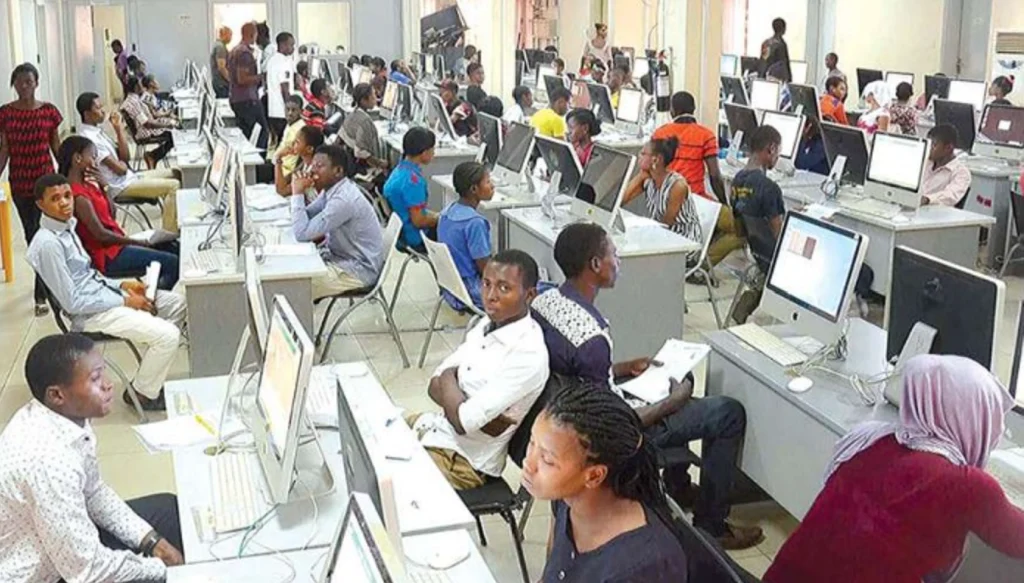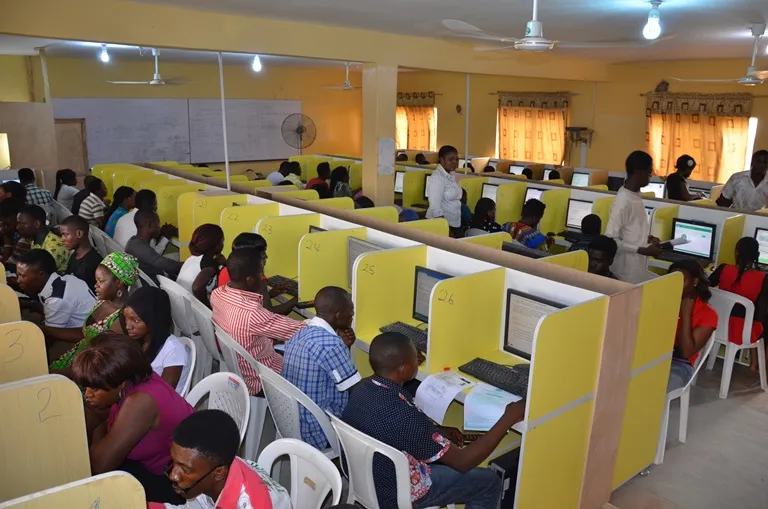The Joint Admissions and Matriculation Board (JAMB) has given all tertiary institutions in Nigeria one month to disclose all admissions conducted outside its Central Admissions Processing System (CAPS) prior to 2017.
Dr Fabian Benjamin, Public Communication Advisor for JAMB, announced this directive at a press briefing in Abuja, Nigeria, on behalf of the board’s registrar, Professor Ishaq Oloyede. The directive aims to enhance transparency and fairness in the admissions process.
“This move is aimed at curbing illegal admissions and falsification of records, while ensuring compliance with the provisions of CAPS,” Benjamin stated.
This directive follows reports that some institutions have been admitting candidates outside the approved CAPS platform and processing these through a loophole to legitimize the illegal admissions.
Benjamin emphasized that institutions must comply with this directive as there will not be any further condonement of unrecorded candidates who did not register with JAMB or sit for any entrance examination.

This decision marks the end of the Condonement of Illegal Admissions window, which previously allowed institutions to incorporate unauthorized admissions into the system. Benjamin highlighted concerns over institutions colluding with candidates to falsify details for illegal admissions, leading to fraudulent participation in the National Youth Service Corps (NYSC).
Despite warnings, some institutions continue to admit candidates outside CAPS and seek condonement for these illegal admissions. Consequently, the Board is terminating the process that allows completely unregistered candidates to be introduced to the system. CAPS remains the only authorised platform for admissions.
Benjamin noted that recent discoveries made it imperative for the Board to act to preserve the integrity of the education system. Regarding the minimum age for admission into tertiary institutions for the 2024/2025 session, the board maintained that the minimum age for admission remains 16 years.
“For the 2024 admission cycle, candidates who will be at least sixteen years old at the time of admission will be considered eligible. This decision follows the directive from the Chairman of the 2024 tertiary admission policy meeting, who is also the Honourable Minister of Education, Prof. Tahir Mamman, that the extant policy of 6-3-3-4 be enforced only from 2025 session”, Benjamin explained.
He expressed concern over a new trend of a strange admission practice labeled “Daily-Part-Time” (DPT) by certain polytechnics and “Top Up” (TU) by some universities. A recent advertisement by Adeseun Ogundoyin Polytechnic, Eruwa, in Oyo State, inviting candidates to apply for its two-year Daily Part-Time (DPT) programme, was highlighted as an example.
“It is crucial to clarify that no such programmes are approved by National Board for Technical Education (NBTE) nor by National Universities Commission (NUC). Both are also alien to the education system in Nigeria.
“They are fraudulent devices to side-line quality, approved quota for full time admission, falsify records and consequently, rake illegitimate income and derail the ambition and career of innocent (and some equally crooked) candidates. The candidates with zero or abysmally low UTME score are rationally attracted to such contraption which would lead to nowhere,” he noted.
Benjamin concluded by stating that part-time programmes are strictly regulated, allowing institutions to admit only up to 150% of the approved full-time capacity. However, some institutions have been found to admit an excessive number of candidates through the unrecognized DPT programme, merging them with full-time students in classrooms, and purporting to graduate them at the same time as full-time students.


